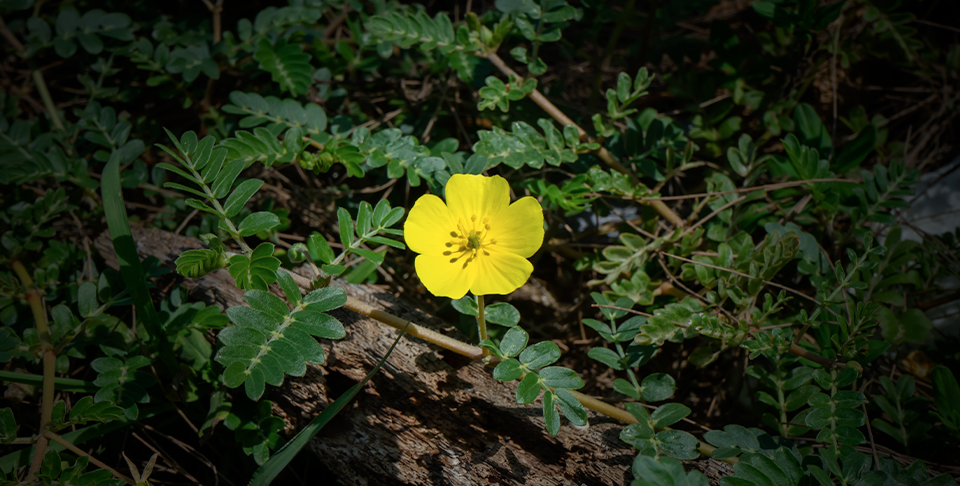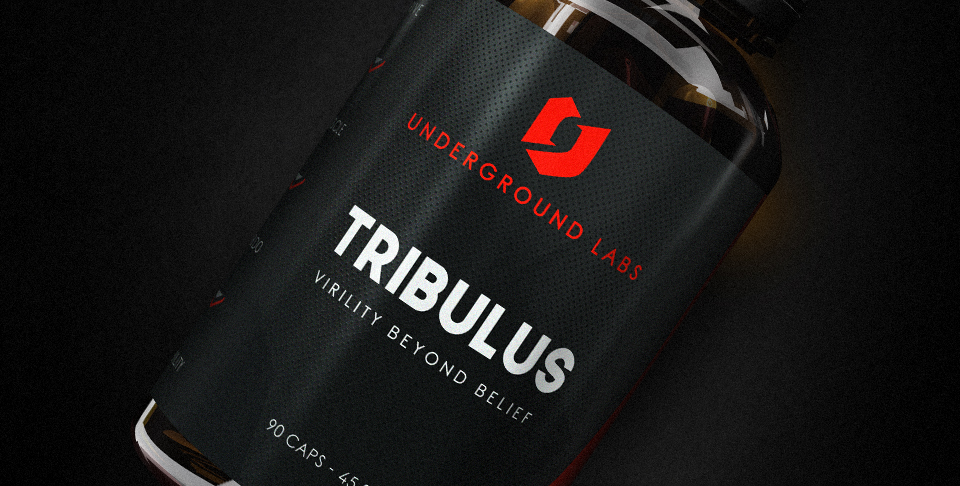Free Shipping - 48hrs Only | Use Code: FREESHIP
Ends 26/04 11:59PM AEST Min spend $79

Tribulus Terrestris is a plant native to many parts of the world, including Eastern Europe, India and China. Known by a number of names, including Puncture Vine, Devil's Thorn, Gokshura, Yingjili, Cat's head, and Tribestan.
Tribulus shot to prominence after Bulgarian strength athletes started attributing their incredible results to extracts of this plant. In the last few decades, it has been widely used by men to boost naturally boost testosterone, which in turn enhances male characteristics including libido and strength. It has also been used as a remedy in various medical traditions to treat conditions as diverse as kidney and bladder disease, high cholesterol and stomach pains, and is also considered to be a general body tonic.
Tribulus Review
The testosterone boosting effect of tribulus is due to the active ingredient, protodioscin. Protodioscin is a steroidal saponin, a natural chemical made by the plant of a similar chemical class to human steroid hormones. Protodioscin does not have a hormonal effect on the human body, rather, it produces raised testosterone levels, although the reason why has not been fully and properly investigated.
It is widely believed that protodioscin stimulates the pituitary gland to produce luteinising hormone, which in turn stimulates the leydig cells in the testes to produce more testosterone (1). Alternately, there is research showing that tribulus may cause androgen receptors to become more sensitive to the testosterone that is already present (2), and other research suggests that tribulus may act through the conversion of testosterone to the more potent dihydrotestosterone (DHT) (3).
Although tribulus has a long history of use, there is not a great deal of study into its effect on humans, and much of what we know has been concluded from animal studies and anecdotal evidence.
Tribulus Side Effects – Testosterone
In the sports nutrition industry, tribulus is used to enhance testosterone levels, which in turn delivers beneficial results, which can include enhanced strength, better focus and energy, lower body fat and greater ease of gaining muscle mass. Tribulus has also been reported to enhance nitric oxide production and increase the production of red blood cells by the bone marrow (3).
Enhancing testosterone levels can also have negative side effects, such as oily skin, acne and increased aggression, and it can enhance secondary sexual characteristics like growth of body hair. One of the best known effects of boosting testosterone is increased libido. This can be a godsend for some men, while for others it can be a constant and frustrating distraction.
Tribulus Side Effects – Hair Loss
Hair loss is one of the most talked about side effects of tribulus terrestris supplementation, and many men are aware that this supplement has been connected to male pattern baldness. As stated previously, researchers have linked the effects of tribulus to higher levels of DHT, which is the form of testosterone that has been strongly implicated as a major cause of male pattern baldness (4).
Unfortunately, there have been no studies that have investigated the link between tribulus and hair loss, or even tribulus and DHT levels in men. It is impossible to conclude that tribulus causes hair loss, but anecdotal reports from those who have used the supplement seems to suggest that this is the case for some men. Tribulus users are best advised to be aware of this potential side effect, and discontinue use if signs of hair loss are observed.
Tribulus Side Effects – Gastrointestinal
The vast majority of the side effects experienced by tribulus users are not serious, and the most common of these is a simple stomach upset. Stomach upset is more likely to occur in people taking larger doses of a less pure formulation. The chance of this occurring can be minimised in a number of ways. Splitting the daily intake into multiple doses and taking these with meals, and using a high quality preparation made by a reputable company, will solve many cases of stomach upset.
Tribulus Side effects - Liver and Kidney
Many people worry about the effect of supplementation on their liver and kidneys, and people often speak of the effect of tribulus on the liver. In this case, the reported side effects are positive – preliminary animal studies have shown that tribulus extract may offer protection against heavy metals and other toxins (5).

Tribulus Side Effects – Blood Pressure
One of the best-known uses of Tribulus in both Indian Ayurvedic and traditional Chinese medicine was the treatment of kidney and bladder complaints. Tribulus contains a protein which is effective in dissolving kidney stones, and it is high in nitrates, which have many benefits, including promoting urination, which can be a beneficial way to sweep bacteria from the urinary system.
Diuretics are commonly used in modern medicine, and they are frequently prescribed in certain types of hypertension where lowering the amount of fluid in the body is able to reduce the volume of blood, reducing the pressure. A study was carried out in people with hypertension, and tribulus was shown to successfully lower blood pressure through diuresis (6).
While this is potentially beneficial to some, people with low blood pressure should apply caution when using tribulus and seeking the advice of a medical professional is recommended. By the same token, it may be necessary to increase water intake.
Many men report excellent results with tribulus and it is one of the most popular testosterone boosters on the market. Despite this, it is important to note that the effects of tribulus will differ between people and not everyone will see the same results. It is important to stay vigilant for any changes, positive or negative, when using this supplement, and any concerns should be discussed immediately with a medical practitioner.
(1) Encyclopedia of Bodybuilding, by Robert Kennedy, p. 238
(2) Gauthaman K1, Adaikan PG. Effect of Tribulus terrestris on nicotinamide adenine dinucleotide phosphate-diaphorase activity and androgen receptors in rat brain. J Ethnopharmacol. 2005 Jan 4;96(1-2):127-32.
(3) Saurabh Chhatre, Tanuja Nesari, Gauresh Somani, Divya Kanchan, and Sadhana Sathaye. Phytopharmacological overview of Tribulus terrestris. Pharmacogn Rev. 2014 Jan-Jun; 8(15): 45–51.
(4) Kaufman KD. Androgens and alopecia. Mol Cell Endocrinol. 2002 Dec 30;198(1-2):89-95.
(5) Lakshmi GD, et al. Protective effect of Tribulus terrestris linn on liver and kidney in cadmium intoxicated rats. Indian J Exp Biol. (2012)
(6) Murthy AR, Dubey SD, Tripathi K. Anti-hypertensive effect of Gokshura (Tribulus terrestris Linn.) - A clinical study. Anc Sci Life. (2000)
